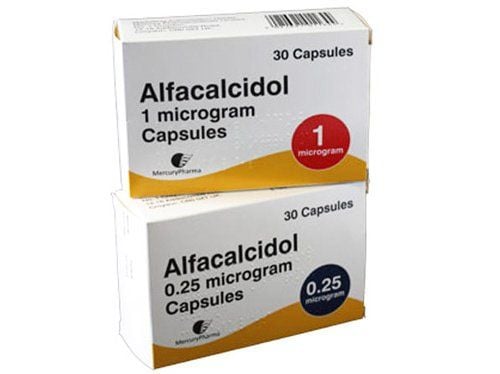This is an automatically translated article.
Phosphorus is one of the most abundant elements in the body, usually in the form of a compound called phosphate. Phosphate plays an important role in the formation of a number of organic compounds, nucleic acids, cell membrane phospholipids, participates in aerobic and anaerobic energy metabolism, and provides oxygen to tissues. Therefore, when there are disorders in blood phosphate levels, it can create harmful or pathological reactions to the human body.
1. Hypophosphataemia
Hypophosphatemia occurs when the serum phosphate level is less than 2.5 mg/dL. There are many causes of acute hypophosphataemia such as:
Diabetic ketoacidosis; Acute alcoholism; Severe burns; Patients receiving parenteral nutrition; The syndrome is seen in patients with prolonged malnutrition who are re-fed; Severe respiratory alkalosis. Hypophosphataemia can be acute or chronic. For acute hypophosphataemia, serum phosphate will fall below 1 mg/dL and often overlap with chronic hypophosphataemia. Chronic hypophosphataemia is usually the result of decreased renal phosphate reabsorption from causes such as:
Increased parathyroid hormone levels in hyperparathyroidism; Cushing's syndrome; Hypothyroidism ; Vitamin D deficiency; Electrolyte disorders, hypomagnesemia, blood potassium; Theophylline toxicity; Prolonged use of diuretics; In addition, severe chronic hypophosphataemia is often caused by chronic anorexia, malabsorption, alcoholism, especially in combination with vomiting or diarrhea; Patients with advanced chronic kidney disease (requiring dialysis) often use phosphate binders with meals to reduce phosphate absorption, if prolonged use can cause hypophosphataemia.

Giảm tái hấp thu phosphat ở thận có thể do tình trạng suy giáp gây ra
2. How to treat hypophosphataemia?
Although hypophosphataemia is usually asymptomatic, anorexia, muscle weakness, or osteoporosis can occur with chronic deficiency. Even serious neuromuscular disorders can occur such as seizures, coma, causing death to the patient. Treatment of hypophosphataemia follows the following principles:
Treatment of the underlying disorder; Oral phosphate supplementation: suitable for asymptomatic patients; Intravenous phosphate when serum phosphate is less than 1 mg/dL or severe symptoms such as hemolysis, rhabdomyolysis, oral supplementation is not feasible due to underlying disorders or CNS symptoms.
3. Hyperphosphatemia
Hyperphosphatemia is diagnosed when the serum phosphate level is above 4.5 mg/dL. Common causes of hyperphosphatemia include:
Decreased phosphate excretion due to severe renal failure, hypoparathyroidism, parathyroid suppression due to hypercalcemia, excess vitamin A or D or granulomatous disease; Diabetic ketoacidosis; Pressure trauma; Non-traumatic rhabdomyolysis; Systemic infections; Tumor lysis syndrome; Excessive use of phosphate through the oral route; Pseudohyperphosphatemia in cases of hyperproteinaemia (multiple myeloma), hyperlipidemia, hemolysis or hyperbilirubinemia. Most patients with hyperphosphatemia are asymptomatic. However, the common soft-tissue calcifications in patients with chronic kidney disease often manifest themselves as hard subcutaneous nodules, external abrasions, and imaging that reveal intraarterial calcium deposits. big.

Sử dụng phosphat quá mức qua đường ăn uống có thể gây tăng phosphat máu
4. How to treat hyperphosphatemia?
The main treatment principle of patients with chronic kidney disease causing hyperphosphataemia is to reduce phosphate intake, using phosphate-binding drugs with meals. Commonly used phosphate-binding drugs include calcium carbonate and calcium acetate, lanthanum carbonate or sucroferric oxyhydroxide.
Alternatively, saline diuretics can be used to improve phosphate elimination in cases of acute hyperphosphataemia with intact renal function. Hemodialysis can lower phosphate levels in severe acute hyperphosphatemia.
When you have symptoms of hyperphosphataemia, you should immediately go to Vinmec to be examined and treated by specialist doctors soon, to avoid serious complications requiring dialysis. The medical team at Vinmec are all highly trained, highly qualified and experienced to help diagnose diseases early and accurately and apply the latest and most effective treatment regimens, minimizing the risk of disease. symptoms.
If you have a need for examination and treatment of disorders of blood phosphate levels, please register for an examination directly at the website or contact the hotline for detailed advice.
Please dial HOTLINE for more information or register for an appointment HERE. Download MyVinmec app to make appointments faster and to manage your bookings easily.









